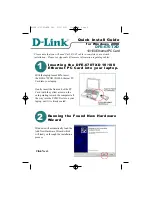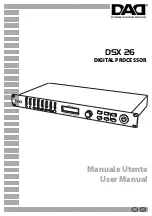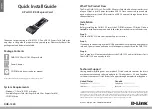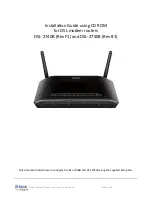
ACCULINK 316x DSU/CSU
E-8
December 1996
3160-A2-GB22-10
Near End Group – “dsx1SendCode” Object
(dsx1ConfigEntry 7)
This object specifies the test patterns/codes being sent
over the Network T1 interface. These tests are not
supported on the DTE Drop/Insert T1 Interface. Only the
following values are supported by the DSU/CSU.
•
dsx1SendNoCode(1) – Specifies that the interface
is sending normal or looped data. Setting the
interface to this value stops an active “send pattern”
test on the interface. This is the only value
supported by the DTE Drop/Insert T1 interface.
•
dsx1SendLineCode(2) – Specifies that the Network
T1 interface is sending a Remote Loopback (Rlpbk)
LLBUP code. The code is sent for 10 seconds.
•
dsx1SendResetCode(4) – Specifies that the
Network T1 interface is sending Remote Loopback
(Rlpbk) LLBDN code. The code is sent for 10
seconds.
•
dsx1SendQRS(5) – Specifies that the Network T1
interface is sending a QRSS test pattern. The
pattern is sent until the test is halted (i.e., setting to
dsx1SendNoCode).
•
dsx1SendOtherTestPattern(8) – Specifies that the
Network T1 interface is sending a 1-in-8 test
pattern. The pattern is sent until the test is halted
(i.e., setting to dsx1SendNoCode).
Near End Group – “dsx1CircuitIdentifier”
Object (dsx1ConfigEntry 8)
This object is not supported by the DSU/CSU.
Near End Group – “dsx1LoopbackConfig”
Object (dsx1ConfigEntry 9)
This object specifies the loopback state of the T1
interfaces. Only the following values are supported by the
DSU/CSU.
•
dsx1NoLoop(1) – The T1 interface is not in a
loopback state.
•
dsx1PayloadLoop(2) – Specifies that a Payload
Loopback (PLB) is active for the Network T1
interface or a Repeater Loopback (RLB) is active
for the DTE Drop/Insert T1 interface.
•
dsx1LineLoop(3) – Specifies that a Line Loopback
(LLB) is active for the Network T1 interface or a
DTE Loopback (DLB) is active for the DTE
Drop/Insert T1 interface.
Near End Group – “dsx1LineStatus” Object
(dsx1ConfigEntry 10)
This object specifies the line (alarm) status of the T1
interfaces. Only the following values are supported by the
DSU/CSU. More than one value may be active at a time.
•
dsx1NoAlarm(1) – No alarm present.
•
dsx1RcvFarEndLOF(2) – A yellow alarm signal is
being received.
•
dsx1RcvAIS(8) – An Alarm Indication Signal
(AIS) is being received.
•
dsx1LossOfFrame(32) – An Out Of Frame
condition has persisted for more that 2.5 seconds
(i.e., Red Alarm).
•
dsx1LossOfSignal(64) – A Loss of Signal condition
has persisted for more that 2.5 seconds (i.e., Red
Alarm).
•
dsx1LoopbackState(128) – The near end of the T1
interfaces is in a loopback state.
•
dsx1Other Failure(4096) – An Excessive Error Rate
(EER) has been detected on the Network T1
interface.
Near End Group – “dsx1SignalMode” Object
(dsx1ConfigEntry 11)
This object specifies whether Robbed Bit Signaling
(RBS) is being used. This object differs from the MIB
definition in that it is “read-only” (not read/write) for
DSU/CSUs. Only the following values are supported by
the DSU/CSU.
•
none(1) – No signaling is being used on this
interface.
•
robbedBit(2) – Robbed Bit Signaling is being used
on at least one DS0 on this T1 interface.
Summary of Contents for ACCULINK 316x
Page 4: ...ACCULINK 316x DSU CSU C December 1996 3160 A2 GB22 10 Notices...
Page 23: ...Introduction 1 9 3160 A2 GB22 10 December 1996 Figure 1 6 Auxiliary Backplane...
Page 77: ...Operation 3 35 3160 A2 GB22 10 December 1996 Figure 3 24 Example Channel Allocation...
Page 135: ...A 1 3160 A2 GB22 10 December 1996 Front Panel Menu A...
Page 136: ...ACCULINK 316x DSU CSU A 2 December 1996 3160 A2 GB22 10...
Page 137: ...Front Panel Menu A 3 3160 A2 GB22 10 December 1996...
















































